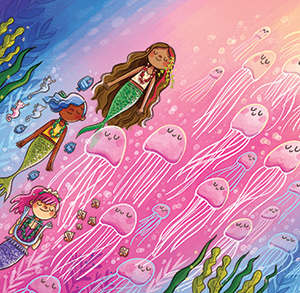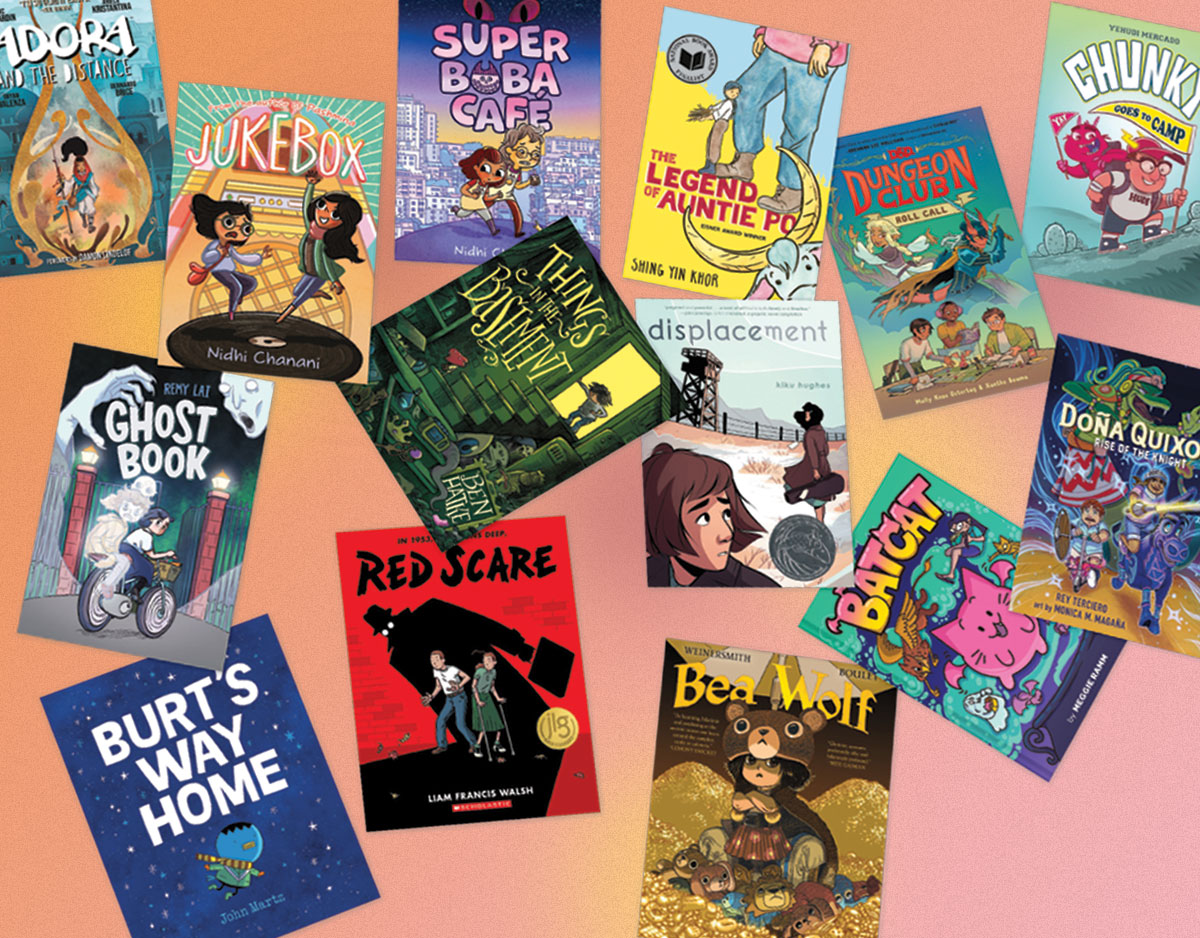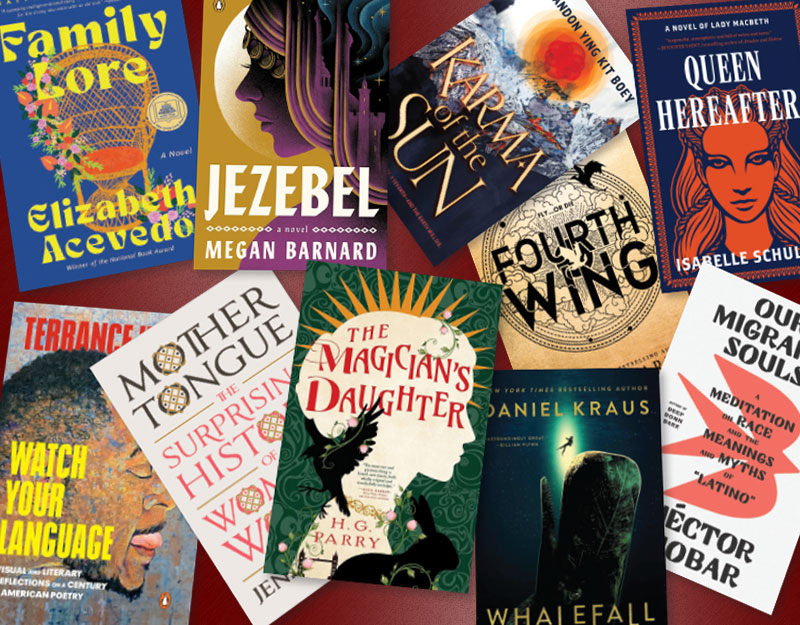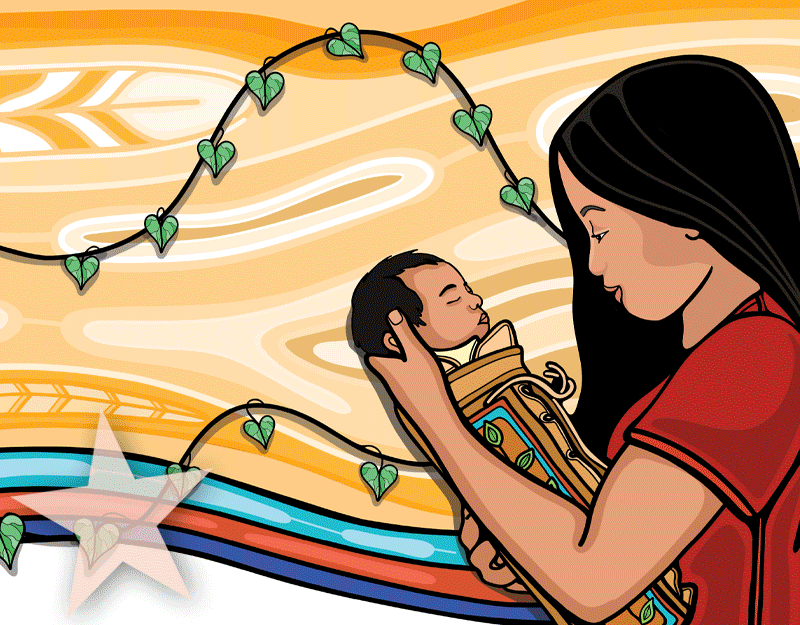Translating Picture Books: Why Don’t We Care?
So I’m having lunch with author Jeff Baron (I REPRESENT SEAN ROSEN) the other day and we’re talking about his play VISITING MR. GREEN. It’s a remarkably popular work, and has had debuts all over the world. The topic naturally turned to translation and Jeff mentioned that he takes an active role in reading and critiquing the various translations of his work. This got me to thinking about translated children’s books. Not the foreign titles that are translated into English, but the American books that are translated into other languages around the world.
The fact of the matter is that the time and care and attention that Jeff has pored into the translations of his staged productions do not have much of a children’s book correlation. American authors, by and large, don’t tend to care what the translated versions of their stories sound like. And even if they do, I don’t think there’s a publisher contract out there that gives the author creative control over translation (you may feel free to correct me on this).
ADVERTISEMENT
ADVERTISEMENT
 Authors care about the translations of the titles of their books, of course. Jeff Kinney, for example, has gotten a lot of laughs from the fact that DIARY OF A WIMPY KID couldn’t be directly translated into German because there is no German equivalent for the word “wimpy”. Many authors, as it happens, enjoy seeing the different covers and titles of their books worldwide. How many, I wonder, take it a step further and translate back their own books so that they can see how their words have been changed? After all, if you’re going to be known to a foreign nation solely through your writing, wouldn’t you want that writing to be as pitch perfect and accurate as possible?
Authors care about the translations of the titles of their books, of course. Jeff Kinney, for example, has gotten a lot of laughs from the fact that DIARY OF A WIMPY KID couldn’t be directly translated into German because there is no German equivalent for the word “wimpy”. Many authors, as it happens, enjoy seeing the different covers and titles of their books worldwide. How many, I wonder, take it a step further and translate back their own books so that they can see how their words have been changed? After all, if you’re going to be known to a foreign nation solely through your writing, wouldn’t you want that writing to be as pitch perfect and accurate as possible?
For a time I had some fun collecting various editions of Harry Potter from around the world. Indeed, I have quite the little collection. My favorite of all these were the various editions of HARRY POTTER AND THE CHAMBER OF SECRETS. Why? The anagram. At one point in the story the words “TOM MARVOLO RIDDLE” turn into “I AM LORD VOLDEMORT” (should I have said “spoiler alert”?). In enjoying the various iterations of that anagram my husband and I noticed that in many cases the very names of the characters had changed. Two of my favorites –
Italian: “Tom Orvoloson Riddle” becomes “Son io Lord Voldemort”.
Czech: “Tom Rojvol Raddle” becomes “Ja Lord Voldemort”.
I’ve searched and searched for a website where someone comments on the changes in a foreign edition of one of the HP books but so far no go.
So I’m going to throw this one out to the authors out there, and not just those of the American persuasion. I want to know if in other countries writers care more about their English translations than we do about our foreign ones. Perhaps they don’t. Maybe no one cares. Maybe everyone does on some level. And are there authors here that have offered to personally oversee the translations of their books? Likely, but is it allowed? Will it ever be?
Much to chew on.
Filed under: Uncategorized
About Betsy Bird
Betsy Bird is currently the Collection Development Manager of the Evanston Public Library system and a former Materials Specialist for New York Public Library. She has served on Newbery, written for Horn Book, and has done other lovely little things that she'd love to tell you about but that she's sure you'd find more interesting to hear of in person. Her opinions are her own and do not reflect those of EPL, SLJ, or any of the other acronyms you might be able to name. Follow her on Twitter: @fuseeight.
ADVERTISEMENT
ADVERTISEMENT
SLJ Blog Network
The Moral Dilemma of THE MONSTER AT THE END OF THIS BOOK
K is in Trouble | Review
Fighting Public School Book Bans with the Civil Rights Act
ADVERTISEMENT








I spent a lot of time exploring this site when I was waiting for Deathly Hallows to come out, which looks at the Chinese, Japanese, and Vietnamese translations.
http://www.cjvlang.com/Hpotter/
I got a little confused when you mentioned that the words “I am Tom Riddle” had become “Lord Voldemort”. Actually it was that the words “Tom Marvolo Riddle” became “I am Lord Voldemort”. (Just to be exact). Thanks for an interesting post!
Oh blooming heck! How right you are!! I am correcting immediately. Yikes!
Emily, I was fighting with myself as to whether to point that out or not, I am glad you did though…
Always point out my mistakes. Always.
Betsy, are you talking about novels, too? There’s nothing built into the translation process that gives me that kind of access and, at the risk of sounding like a bad author, just trying to imagine the logistics of working closely with translators exhausts me. I’d either have to travel to the country where it was being done to go over the manuscript line-by-line with the translator — or have the translation sent back here to be re-translated back into English by someone else. Right?
You’ve just upped my guilt quotient for the day. Sigh.
I’m not trying to guilt anyone, I’m just trying to find out the difficulties. I don’t think anyone should be obligated by any means to do the multiple multiple steps you just specified. But I am curious as to whether it has ever been done by an author. Authors have enough work on their plates, so I suspect not so much. Still . . . there’s gotta be somebody, right?
I had one of my books translated into German by Eva Plorin. I don’t have enough German even to read the book, let alone translate it, but Ms. Plorin sent me a number of queries to make sure she translated just what I had in mind: for example, she asked if a certain character’s coat was a long coat or a short coat, since there is no German word that covers both a long and a short coat. She asked me where I imagined characters were standing in relationship to each other during climactic scenes; she also asked me to describe the exact shades of the colors I alluded to in various passages. I was enormously impressed by her attention to detail, and how strong her desire was to get everything exactly right. Another of my books was translated into French by Antoine Pinchot. Since my French is much better than my German, I could see that the translator condensed some passages and made things up in others, but the things he made up were right on pitch for the different characters, and the style was right. The translation was not accurate, if you looked at it word for word, but the translator got to the heart of the matter, all the same.
The strangest translations for me have been the Korean and Japanese and Chinese translations–I look at books I WROTE and am unable to read a single word.
Laura, I have the same experience with my Asian translations. And they seem so short — all that white space. It’s unsettling. They could have swapped books on us without our knowing it. Maybe there are some Japanese children who think I’ve written your books and vice versa.
I’d be proud to the point of weeping to have written any of your books. Come to think of it, maybe enough time has elapsed so that I can reread them again….
Laura, I do hope you know that’s all mutual. I’ve told Adam often enough, hoping it might wander back to you.
My question would be how many authors even have the opportunity to ask. I’ve only had a couple of books translated (that I know of!) but I wasn’t told till after the foreign editions were published. In fact, I think I only found out when it appeared on my royalty statement.
Beyond that, for me it’s not so much a question of too much work as lack of skills. If I don’t know a language, how do I tell if the translation is off? And if I have it translated back, why should I trust the second translator more than the first?
‘Surrounded by Idiots’ is a bad translation, and there are a few words that would translate well in German, but Germans have always liked creating their own titles, ridiculous ones seem to be favorites. But if a book or movie is good, they’ll figure it out. Last time I looked Germans buy more per capita than any other culture.
Many European authors understand enough other languages to be able to check the translations of their titles. However, I believe it’s their publisher’s responsibility to make sure that the foreign language editions have been translated accurately and faithfully.
Our foreign right contract states the following:
“The Publisher shall cause the translation to be made from the current edition faithfully and accurately by a competent translator.
The Publisher shall submit their translation to the Proprietor for approval.”
THANK YOU! This is precisely what I wondered. And though I have seen few foreign right contracts here in the States, I am under the distinct impression that our publishers assume no such responsibility. Though I suspect the smaller publishers might be different.
The logistics of vetting a translation makes it almost impossible. You—or a close friend—would need to be fluent for it to happen. And unless you’re dealing with a Harry-Potter-level empire, it probably isn’t worth the time, money, and hassle to have a translation translated back for you. You’re generally just happy to have it translated, period.
We have been consulted on UK translations (from American to British English). Most of these were simple terminology differences (trash/rubbish, math/maths, cotton candy/candy floss, amusement park/fun fair), but some were unique problems—what’s the metric equivalent of a “foot-long hot dog?” (They changed it to simply read “hot dogs”, which Babymouse’s brother was eating too many of.)
This reminds me of how incensed folks would become when they learned that the Harry Potter editions were “translated” for American readers. But just as you’ve pointed out here, there are some distinct differences.
I am now possessed by an overwhelming urge to see a British Babymouse. Better yet, one where she’s traipsing around jolly old England imagining herself as Mary Poppins, Harry Potter, the Queen, etc. It feels so real to me . . .
Were you peeking at the proofs for BM19? Stay tuned for “Babypoppins”! Not joking.
All is right with the universe.
When my YA novel Gringolandia was translated into Italian, I didn’t have any communication with the translator (though I heard good things in general about Italian translators). I do know enough Italian to read the just-published translation and get a pretty good idea of its faithfulness, though it would take me a lot of time, grammar review, and dictionary-checking. I do plan to spend some time doing this, just to get a sense of what, if anything, was misunderstood or changed. On the other hand, when I recently translated a picture book from Portuguese to English, the author did have input. A lot of the problem, I think, is that people in the U.S. don’t have anywhere near the multiple language skills of their European counterparts. My husband has an affiliation with a university in Lisbon, Portugal, and he says that in the EU, they’re trying to have a quarter of all university courses taught in English. Great for him, because, unlike me, he doesn’t know Portuguese.
Betsy, I’ve been playing with English/German translations in my Sonderling Sunday posts for a few years now. http://sonderbooks.com/blog/?cat=184 I’m more than half way through looking at James Kennedy’s “The Order of Odd-Fish” section by section. He wrote so many bizarre phrases for the translator! (such as: “a rotting face smiling inches from her own.”) I have fun translating them back to English and seeing how we look at things differently.
I’ve got quite the collection of German children’s books, having lived in Germany for 10 years, so I’ve dipped into several other books. But I keep coming back to Odd-Fish, because James is the one who started me off by sending me a copy of The Order of Odd-Fish, which translates to “Der Orden der Seltsamen Sonderlinge.” I’ve always been proud that “Sonder” is a German prefix meaning “special.” Well, a “Sonderling” is essentially a nerd, or, well, an Odd Fish.
Translations from English into other languages are often completed without the writer being involved, often with no queries or consultation whatsoever. This is such a missed opportunity. How wonderful if writers were invited to play a larger role, and if translators/editors were encouraged to consult with writers during the translation process. In most cases, better translations would result.
Betsy, thanks for the shout out. Sorry not to have joined this conversation sooner. I was shocked to hear that book authors don’t have approval over translations. It’s standard in a playwright’s contract. That said, I’m the only playwright I know who vets translations carefully. I have more going on overseas than most American playwrights (42 translations of 7 plays into 23 different languages), but it’s more than that. From the first time I carefully read a translation, I knew I’d have to be involved. My characters did and said things they’d never do or say, and the meaning of the play sometimes got garbled. Sometimes it’s just funny, like when my character referred to The Mile High Club and the translator thought it was a frequent flyer program. That was a play for grownups, by the way.
It is very time consuming. I use online translation tools, which I’ve gotten to know very well and which I use very carefully, to help identify possible mistranslations. Then I find someone truly bilingual, who knows both cultures, to run my questions by. Then I go back to the translator. In my experience, even if I make myself available to a translator during the process, they rarely ask me questions, even if they have no idea what I meant. They’ll guess or just cut that line, or translate it literally, which for a guy who writes funny stuff, often doesn’t work. But when you communicate, you can figure out the funny equivalent in the other language.
I recently gave my Romanian translator 21 pages of notes on a play. She incorporated about 85% of them, and explained why she couldn’t on the others. She was very grateful to have the missed connections explained. A huge added benefit is that the director, who was also copied on my notes, learned a lot about the play and the characters that will greatly benefit the production, which I will see in Bucharest this weekend. That’s an added benefit. Often when you’re really involved, they bring you over for the premiere.
For me, the thrill of being a writer is communicating with people I don’t know. Whether those people are Romanian or Japanese or live next door to me in New York, I want to have the same conversation with them.
Interesting post, Elizabeth. Allow me to weigh in, as I’m both a (children’s) author and a translator (from Hebrew into English) as well. I’ve had my worked translated into a few languages, including Hebrew. In one instance I went over a translation of a short story of mine (for adults) very closely. This was time consuming, and while I caught a couple things that were glaring mistakes, there were a number of things I ultimately wasn’t sure about, simply because my Hebrew, however good, doesn’t quite include the kind of nuance that a highly educated native speaker has. My middle-grade novel–33 Minutes–is going to come out in Hebrew soon, and I’m debating whether or not to get involved in that translation. I have two choices: 1) Hope and pray that they do a good job with it–and thus do nothing else; 2) Ask to read it, and possibly find out the translation’s lousy, and/but then what? Do I really want to spend time and energy fighting over the translation? With editors, publishers, and translators I don’t know? With people who can (justly) claim that they know the language in question better than myself?
I think authors writing in other languages have special interest in their English-language translations for a couple reasons. One, it’s fairly likely (depending on their native language/country) that they’ll know English quite well. Well enough to get a rough sense for the quality of the translation. Second, for many writers the English-language market is many times larger than their native market. Success here is, with regards to the bottom-line, more meaningful for them than is my potential success in, say, Bulgaria.
When I translate I’m in pretty regular contact with the authors. And that back-and-forth is one is my favorite parts of the process. I’ve had some dialogue with people translating me, but not much. Maybe because their English is better than my Hebrew. Or maybe I’m more conscientious.
Those are my (scattered) two-bits.